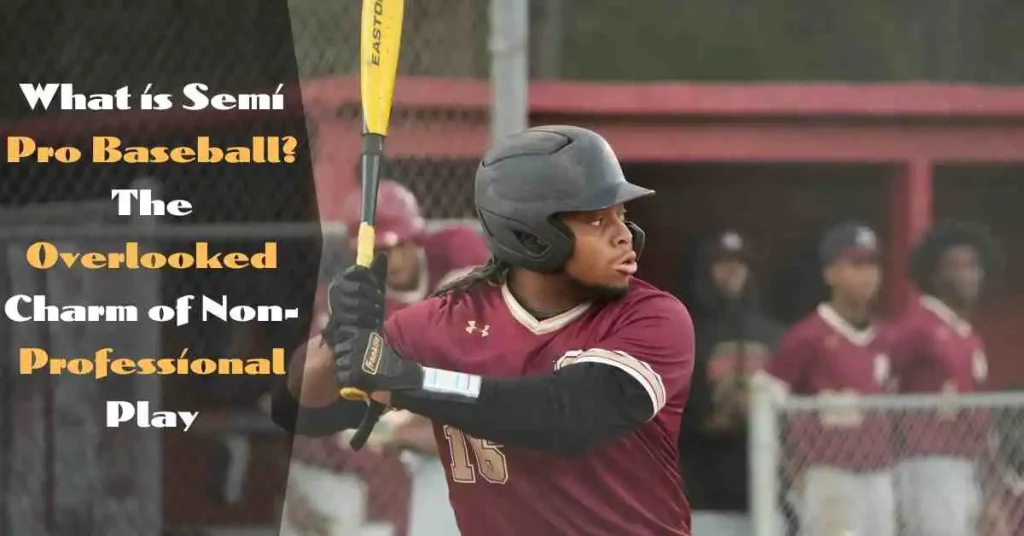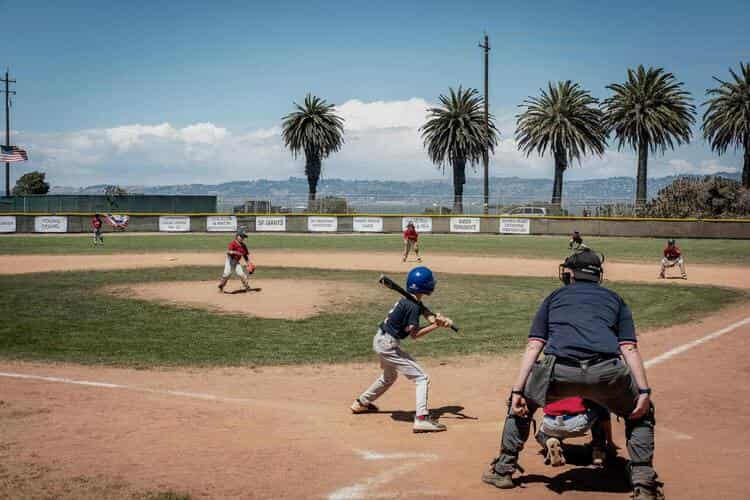Semi-pro baseball allows the athletes to play at a high skill level while fulfilling their roles in the jobs and family and not having the same full-time contracts and full salaries. It’s an opportunity for players to remain competitive and enjoy the game without the full-time commitment demanded by major league organisations. In this article, we break down what it is, how it compares to professional baseball, what players can gain from playing semi-professional baseball leagues, etc.
What is Semi Pro Baseball?
Semi-pro baseball is a team of elite players who don’t make big contracts or use baseball as a form of income. These players often hold down regular full-time jobs or commitments outside the game but still make time to compete at a high level. Semi-professional baseball is a term applied to the caliber of professional athletes who do not have the sport as a full-time career or a means of living.
What separates semi pro baseball athletes from professional players is the level of time commitment. Most semi professional baseball leagues do not play nearly as many games as the pros and also require less travel, enabling the player to juggle baseball with their other commitments in life.Learn more about baseball in the Summer Olympics

What is the Semi Pro Meaning?
Semi-pro means athletes who compete at a high level but do not make enough money from the sport to be considered full-time professionals. After not making baseball their full-time career, players in semi-pro baseball leagues have significant skill and athleticism. They could still have jobs in different industries, like business, education, or healthcare, and still play in a competitive baseball league.
Semi-professional baseball offers players the benefit of still being able to play at a competitive level without the stress involved in making baseball a career. It provides those who want to manage their careers while simultaneously enjoying their passion for baseball a perfect balance.
Semi Pro Baseball vs Professional Baseball
There are semi professional baseball leagues in different areas, and the level of play differs based on the league. These leagues are usually community-based; most players are former college athletes, former minor league players, or local talent who want to be involved in baseball. For Canadians who did not make a professional organisation, such as Major League Baseball (MLB), these leagues help players continue to develop their skills, keep performing at a high level, and love the sport they play without a full-time commitment.
These semi proffesional baseball teams are sometimes affiliated on the ground level with minor league teams (like minor league baseball in Texas) and give players a chance to stay honed for professional scouts. However, most semi-pro baseball teams exist independently, providing a more casual but competitive atmosphere for the ball players.Discover more about the oldest MLB teams
Semi Pro Baseball Leagues:
More than semi proffesional baseball leagues, it is a professional commitment and level of compensation. This is different from the million that play in the minors or at a professional level, because that is true, A life set against us, working full-time for a salary, dedicated to baseball for the entire or up to the crack of dawn for the love of the game. They live and breathe baseball, dedicating much of their time to practice, travel and competition.
There are several semi-pro baseball leagues around the country, including the Baseball California League, which has exceptional players from all over the area. These leagues often include local players, former college athletes, and former professionals seeking a competitive outlet.
Semi-Pro Baseball in Texas:
Texas Minor League Baseball Teams allow skilled athletes to play with aspirations of one day making it to the big leagues. These teams allow players an opportunity to train but also help manage their careers beyond professional sports.
Another factor contributing to this trend is that some semi-professional baseball teams are affiliated with Minor League Baseball Texas Team, which provides a more direct route to professional play for those with exceptional talent. Fans can follow competitive baseball locally in semi-pro leagues, which include play across much of the state.
Baseball California League:
This league is more common in semi-pro, based on the level of competition and looking to hit the following significant steps. Some are independent, while others may be affiliated with more significant associations. One example is the California League, where many athletes play baseball to make a name. These semi-professional baseball leagues allow these players to hone their skills, and act as the stepping stone into minor league baseball in Texas teams for some.
Semi-pro baseball leagues are not as standard as professional leagues. Though largely unheralded, these leagues are crucial to the baseball ecosystem. They offer a home for athletes who want to compete at the same level as their peers without the time commitment of a full-time professional job.

How much do semi pro baseball players make?
Many wonder how much money semi-pro baseball players make. However, this payment is relatively low compared to the salaries received in the league a player might join to play in higher divisions. Semi-pro baseball teams sometimes pay stipends, and though those payments are generally sufficient to cover travel, uniforms, and equipment, they are far from what professional baseball players earn in salaries.
The paychecks awarded to semi-professional baseball players typically do not serve as their bread and butter. Most players balance their baseball careers with full-time jobs, and for many, the chance to play baseball competitively which is mostly for the sport itself and not the profit it generates.

Conclusion:
It fills a real need for players who can still play even if their life responsibilities have expanded. To sum up, semi-pro baseball is not only an excellent experience for athletes looking to play competitive baseball without the time and money commitment of pro leagues.
FAQs:
- What is a semi pro?
A semi-pro is an athlete who plays a sport at a high level of competition but does not depend on it for full-time income. They often have jobs or commitments in addition to being athletes.
- How much do players get paid semi professionally?
Semi-pro baseball players generally earn small stipends or travel reimbursements, but not a full-time income from baseball. The majority of their income is auxiliary.
- What is the difference between professional and semi-professional baseball?
Professional baseball players are full-time salary players who dedicate their lives to the game, while semi-pro baseball players must juggle baseball with work or other commitments.
- What is the difference between a semi pro and an Amateur player?
Both semi pro and amateur baseball are types of baseball played by athletes who are not paid professionals and play during their free time. What sets them apart is their skill and the level of their competetion.
